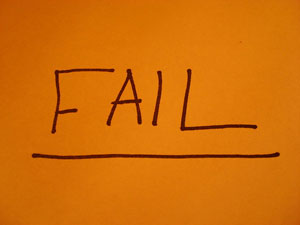
Flickr/<a href="http://www.flickr.com/photos/moon_child/3965679774/">moon child</a> (<a href="http://www.creativecommons.org" target="_blank">Creative Commons</a>).
Rep. Henry Waxman (D-Calif.), the powerful chair of the House Energy and Commerce committee, thinks it could be good for liberal Democrats to lose some of their more “difficult” allies. The Hill reports:
In an interview with The Hill, the Energy and Commerce Committee chairman expressed confidence that Democrats will retain the House, and suggested he won’t miss some of the Democrats who won’t be back next year.
“I think a lot of the House seats we’re going to lose are those who have been the toughest for the Democrats to pull into line—the Democrats that have been the most difficult,” Waxman said.
Over at Daily Kos, Markos Moulitsas writes that “Waxman channels many of us”:
It’ll be November’s biggest irony—the voters will turn against Democrats in significant numbers because of the economy, or better put, the lack of jobs. But it won’t be Democrats who supported a larger (more effective stimulus), or job benefits extensions, or aid to states, or other measures designed to deal with our shitty economy.
Rather, it’ll be the Blue Dog Democrats who think their voters care more about deficits than jobs that will take the brunt of this beating. And really, to them, good riddance.
My biggest worry won’t be over the size of a decimated Blue Dog caucus, but how many truly good Democrats get taken out as collateral damage.
This is silly. Absent special considerations (like law-breaking or electability), liberals should always prefer more liberal candidates to less liberal candidates. There are no Republicans in the current Congress with more liberal voting records than even the most conservative Democrat. In a two-candidate race between a conservative Democrat and a very conservative Republican, why would a liberal prefer the Republican? As far as Waxman goes, a more GOP-leaning House (even if the Dems maintain control) will mean more Republicans on his committee (and the House overall), and even harder lifts on tough votes. Just look at the Senate. Harry Reid has less margin for error than Nancy Pelosi, and that means legislation that’s more conservative, not less so. Politics is not always about choosing between the guy you love and the guy you hate. Sometimes it’s about choosing between the guy you hate and the guy you hate more.













